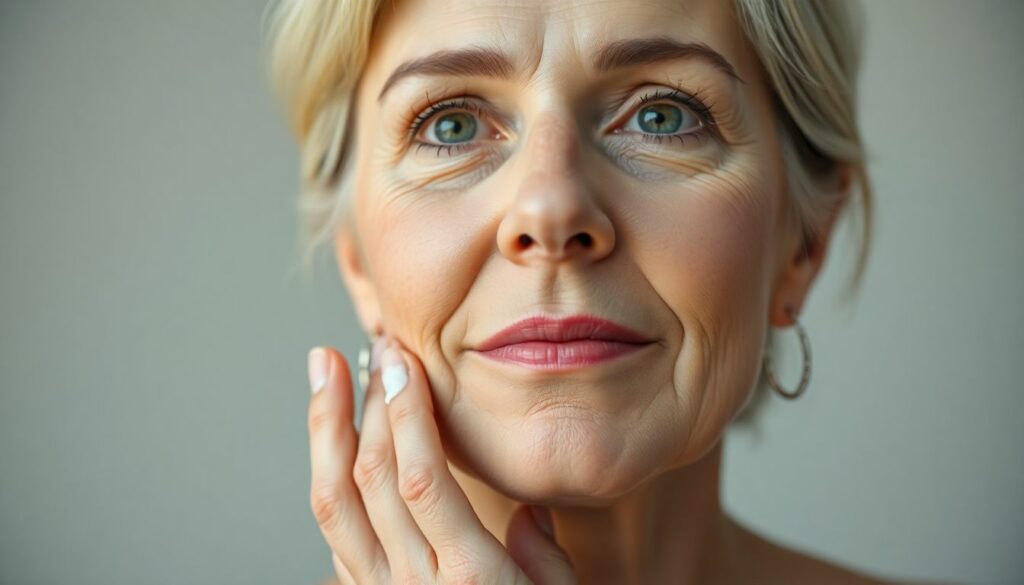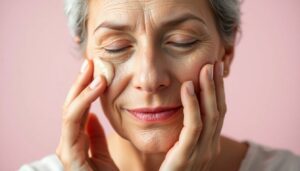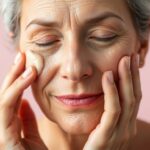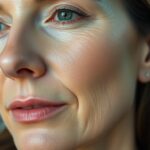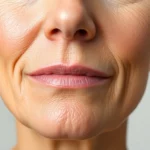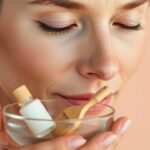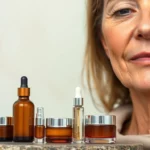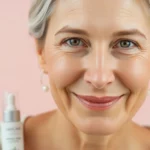Ever look in the mirror and notice those pesky fine lines? Or perhaps your skin feels drier than normal. It happens! Skin changes as we age. A good moisturizer becomes really important.” This is not merely about feeling better. It’s all about maintaining healthy, happy skin.
Picking the best moisturizer is critical. It will respond to the specific requirements of maturing skin. Let us examine what to watch out for.
Topline The Best Moisturizers For Aging Skin
We tend to age from the inside out, and as we age our skin does too. Being aware of what’s happening allows you to choose the appropriate products. It also keeps your skin hydrated.
The Science of Skin Aging
Consider collagen and elastin as the support system of the skin. Over time, we lose some of that help. Our skin also makes less oil. Cell turnover slows down. All of these interfere with the moisture barrier of our skin. That barrier helps retain water.
Weak barrier means skin is more prone to dryness. Your fine lines and wrinkles may appear more prominent. All part of aging.” A nice moisturizer reduces the risk of these changes.
Why Should You Use Specialized Moisturizers for Aging Skin
That basic moisturizer you reached for in your 20s? It might not cut it anymore. Old skin, as it turns out, has different needs. It requires ingredients that are targeted towards specific issues. Regular creams are, often, sitting on top.
Products with ingredients such as hyaluronic acid need to be sought after. These draw moisture into the skin. Retinoids can boost collagen. Ceramides restore that crucial skin barrier. Aging skin requires extra care to stay moist.
Essential Ingredients to Seek in a Moisturizer
The moisturizer selection process can feel daunting. It is simpler to know the key components. Some ingredients will yield the best results for you.
Hyaluronic Acid: Hydration Hero
Hyaluronic acid is a moisture magnet. It draws water from the air to your skin. It can absorb up to 1,000 times its own weight in water. This plumps up the skin. Fine lines appear visibly diminished.
Hyaluronic acid comes in different sizes. Some penetrate further into the skin than others. Seek out a moisturizer that has a combination. Thus it hydrates on different levels. Your skin will thank you.
Retinoids: Stimulating Collagen Production
Retinoids are horsepower of vitamin A. In flora, they enhance the collagen production. Collagen keeps skin firm. Retinoids also accelerate cell turnover. This improves the overall texture of your skin for smoother, brighter skin.
Retinoids can cause irritation, such as redness. Start slow. Use it a few nights a week. Start slow as your skin acclimates. There are various kinds of retinoids. Retinol is a mild, beginner-friendly choice.
Ceramides: Repairing the Skin Barrier
“I need a crème with ceramides.” Ceramides are fats in your skin. They constitute a large portion of the skin barrier. This shield retains moisture. It shields us from outside irritants. As we age, we lose ceramides. This weakens the barrier.
Ceramide moisturizers help repair the skin. They prevent water loss. They help keep skin healthy and strong. Here are the ingredients to consider while selecting your next cream.
What Moisturizer is Right for Your Skin Type?
The truth is, no two skins are alike. Skin types require different things. The first step is knowing your skin. These help you choose the right moisturizer.
Dry and Mature Skin
If you have dry, mature skin you need moisture. Select thick, rich moisturizers. Awesome emollients include shea butter and oils. These moisturize and soften the skin. Occlusives, like petrolatum, beeswax, and mineral oil, are also beneficial. They lock in the moisture.
Layering products can also aid in that. Start with a hydrating serum. Apply your rich moisturizer afterward. That thus gives your skin its best chance at remaining hydrated.
Oily and Mature Skin
Even mature oily skin needs hydration. Choose moisturizers on the lighter side with non-comedogenic properties. Non-comedogenic means it doesn’t cause pore blockage. Seek out hydrating ingredients such as hyaluronic acid.
Oil-free formulas are your best friend. Niacinamide may help control oil production. It will also reduce redness. A regular light moisturizer will balance your skin.
Application Strategies and Advice for Optimal Retention
It’s not only what moisturizer you use. It’s also about the way that you use it. Proper application can amplify the effects. And it’s the outlying differences that can change everything.
The Best Time to Moisturize
Moisturize after cleansing. Your skin is prepared to soak up moisture. Do it before applying makeup. This creates a smooth canvas.
This is the right time to moisturize — at night. Your skin heals itself while you are sleeping. This process is helped along with a rich moisturizer. Wake up with refreshed skin.
How To Layer Your Skincare Products
A layer of skincare can add hydration. Start from the thinnest products. Finish with the thickest. For instance, serum, moisturizer, oil.
Serums are more concentrated ingredients. Moisturizers moisturize and shield. Oils lock everything in. This layering technique ensures every product performs to its fullest potential.
Busting Common Moisturizers Myths
There is a lot of misinformation surrounding moisturizers. First, let’s debunk some common myths. Get the facts straight; take better care of your skin.
“I Have Oily Skin, So No Need for Moisturizer”
This is a big misconception. Even oily skin needs moisture. Dry skin produces more oil. This can lead to breakouts.
Use a light-weight moisturizer. Look for oil-free options. They hydrate without causing clogged pores. Your skin will remain balanced and in good health.
“Moisturizers Are All the Same”
Moisturizers come in all forms, but not all are equal in its purpose. The ingredients are what makes all the difference. Some focus on hydration. Others target wrinkles. Some repair the skin barrier.
Drugstore moisturizers are perfectly fine. Fancy ingredients may be akiltvtr Qibijitsel events Pick one that suits the needs of your skin. Read the labels. Be aware of what you’re putting on your face.
Conclusion
Questions to Ask When Picking the Best Moisturizer for Aging Skin It’s about knowing how your skin behaves. It’s a matter of knowing the basic building blocks. It also takes some of the best application techniques.
Consistency is key. Continue with your skincare routine. Watch how your skin changes. Use a targeted moisturizer with the right ingredients. Protect skin health and hydration.
